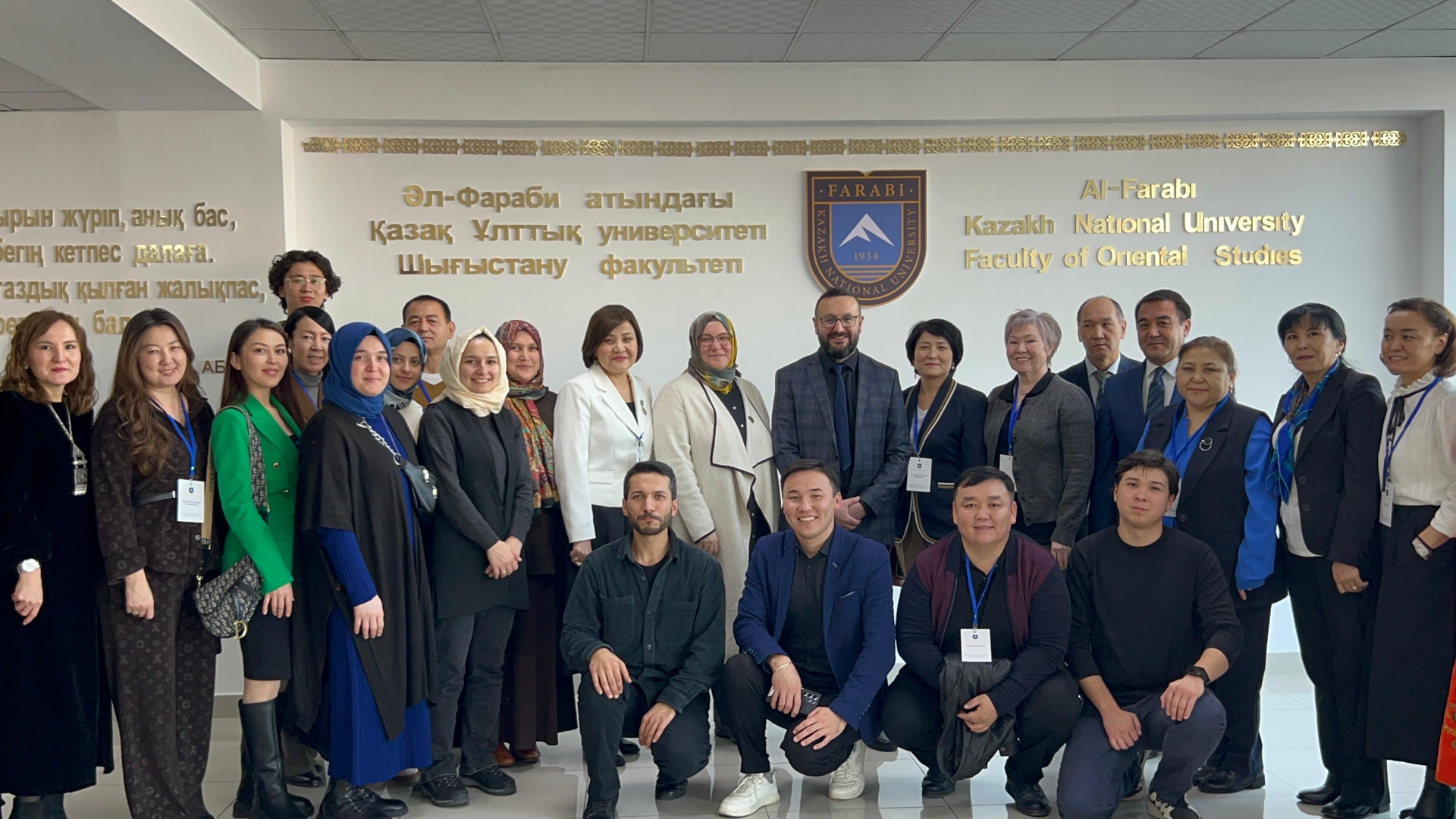


The Certificate Program for Teaching Turkish in Kazakhstan, organized as a one-month professional development seminar by Ibn Haldun University and the Department of Turkology and History of Eastern Countries of Al-Farabi Kazakh National University (KazNU), was held from November 4 to 29, 2024. Supported by the Presidency for Turks Abroad and Related Communities (YTB), the project aimed to enhance the international teaching of Turkish, introduce innovative methods, and strengthen cultural interaction between Turkey and Kazakhstan.
The seminar focused on improving the ICT skills of university instructors, introducing them to artificial intelligence tools, enriching students’ vocabulary, and advancing their skills in teaching Turkish language. Faculty members from Al-Farabi Kazakh National University, Abay Kazakh National Pedagogical University, Kazakh National Women’s Pedagogical University, and Abylai Khan Kazakh University of International Relations and World Languages participated in the program.
Experts from Ibn Haldun University, Gazi University (Ankara), Istanbul University, Al-Farabi Kazakh National University, and Yunus Emre Institute delivered informative sessions, sharing pedagogical experiences on digitalization and modern technologies in foreign language teaching. The program was conducted in a hybrid format, with online sessions followed by a week-long in-person closing program in Almaty, allowing participants to apply their theoretical knowledge in practice. Turkish language teachers who successfully completed the workshop received an 80-hour international certificate.
The Director of the School of Languages at Ibn Haldun University, M. Furkan Alpat, and faculty members visited Turkey’s Consul General in Almaty, Evren Müderrisoğlu, and Education Attaché Ayhan Korkmaz to provide updates on the project and explore collaboration opportunities. Additional visits were made to institutions to strengthen educational ties between Turkey and Kazakhstan and discuss potential partnerships.
Participants emphasized the seminar’s effectiveness in terms of content and application, noting its contributions to their knowledge and experience in teaching Turkish as a foreign language. They also highlighted the program’s role in fostering cultural interaction and intercultural communication between Turkey and Kazakhstan.
This project, organized to support the international teaching of Turkish and serve as a model in the field, is considered a significant step in strengthening cultural ties between Kazakhstan and Turkey. Participants expressed their satisfaction with the establishment of a platform to enhance language and cultural exchange between the two countries. The project is expected to pave the way for future collaborations and promote innovative approaches in the international teaching of Turkish.